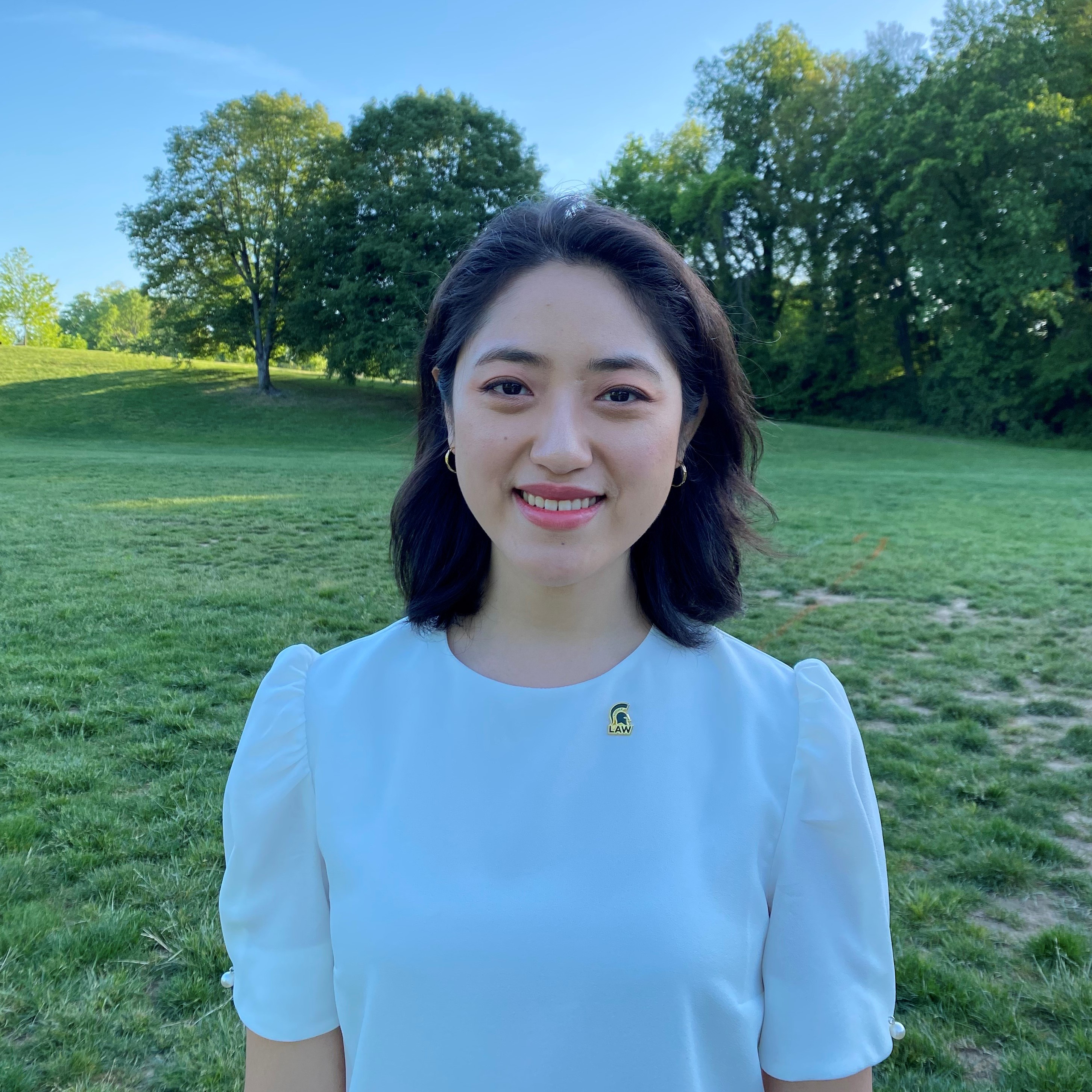
Sharon (HaYoung) Bahng
Sharon (HaYoung) Bahng, ’21, came to the United States from South Korea to study international relations and economics at Calvin College in Grand Rapids. She took her desire to understand how the world works to the next level with law school.
“College education never gives a full picture of everything, just a very broad stroke, so I think law school really did help me to frame my perspective of the world, especially in the U.S. legal society,” she explained.
Her interest in international law guided many of her decisions at MSU College of Law, like taking public international law and immigration law courses. Bahng interned for a small immigration law firm in Los Angeles during the summer following her 1L year. She said that the experience allowed her to better understand the broad range of the legal industry, and it showed her how she would like to model her own career.
“I did not expect a law firm to be that friendly and value-centered, rather than being driven only by money,” she said. “Maybe that’s another thing with smaller law firms: they have more room to have human interactions. That’s kind of where I thought, ‘You know, I want my legal career to look like this – look more human’.”
Bahng also completed an externship at the United Nations Office of Counter-Terrorism in their Human Rights division with the Lori E. Talsky Center for Human Rights of Women and Children, interned for Judge Mark H. Murphy for the Superior Court for the Tallapoosa Judicial Circuit, and interned at MSU’s Center for Anti-Counterfeiting and Product Protection (A-CAPP).
“I definitely learned a lot from each experience,” Bahng said. “I think in the future I can use every skill that I learned, even though it might not be of the same topic.”
At MSU Law, she was involved in the Clinic as a student clinician with the Animal Welfare Clinic for a semester. Bahng was also the president of the Asian Pacific American Law Student Association (APALSA) during her 3L year at the College of Law.
She reflected on her law school years, noting the ways in which they helped her to see what she’s capable of accomplishing.
“I don’t think I could have done anything differently. It was a struggle, but second year was definitely easier,” she explained. “The 1L year was challenging but it did make me grow, and it did make me familiar with the legal language that, as lawyers, we are supposed to know.”
Bahng holds onto a particular memory from first-year oral argument finals in her advocacy course.
“After my whole argument, I cried actual tears when people were like, ‘You did a good job’ and ‘It’s not easy being an international student speaking in front of people.’ I didn’t think much about it, until I thought: ‘Actually, yeah, it’s a big deal that I’m not from the States or from Michigan and I’m speaking in front of people in legal terms, presenting my argument.’ I think that gave an affirmation that I’m not doing that bad.”
Bahng will take the New York bar exam in the summer of 2021, and she aspires to work at a nonprofit or international organization.

